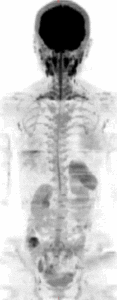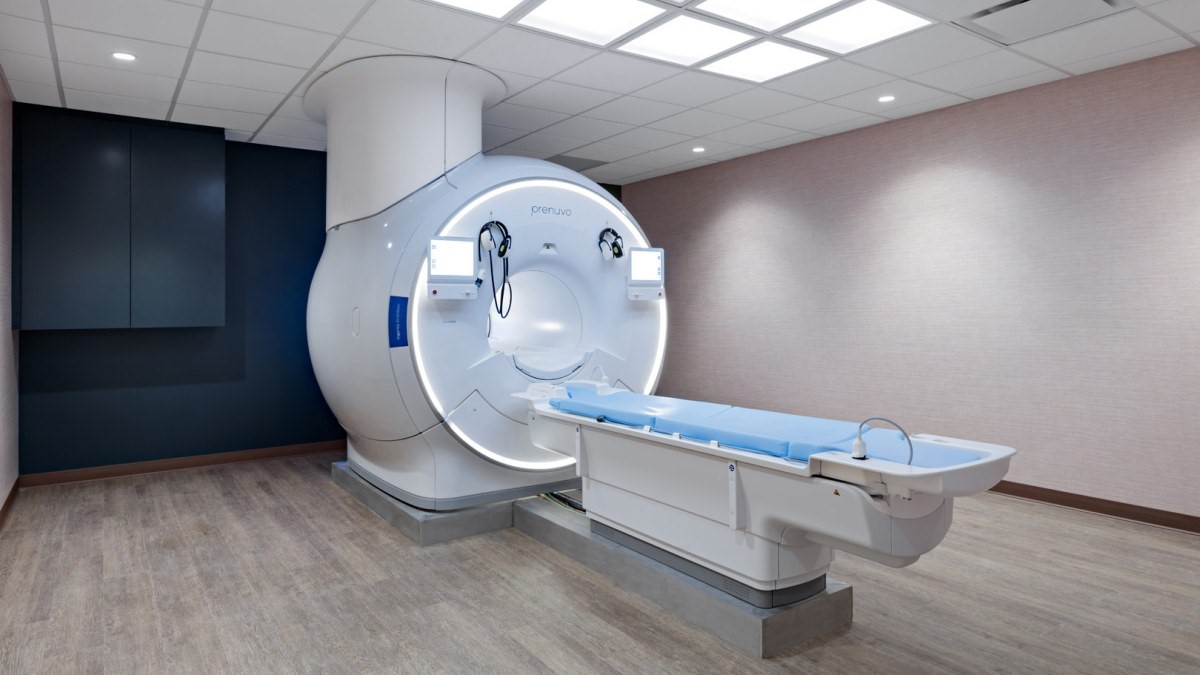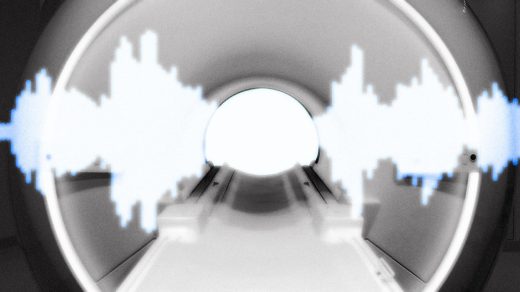Prenuvo is bringing AI music to MRIs. Can it cure your claustrophobia?
For some, MRIs are a unique brand of nightmare.
Have claustrophobia? Hop into this narrow tube, where you’ll be instructed not to move for the next hour and a half. Afraid of needles? You don’t want to know what “with contrast” means. Weary of doctors and the medical world at large? Prepare to be ensconced in its full sterile glory, with your only comfort being those colorful grippy socks (which you’ll later pocket as part of the absurd deductible that almost made the whole thing prohibitively expensive in the first place).

Anxiety is a very real problem when it comes to MRIs, with nearly 60% of patients experiencing it during a scan, and varying percentages bailing before or during what could be a lifesaving procedure. Walter Werzowa observed it firsthand when his son had to endure a number of MRIs to deal with the rare condition known as Legg-Calve-Perthes disease—and it became an issue he set out to explore through his craft. But Werzowa is not a doctor, scientist, or engineer. He’s the composer behind the ubiquitous Intel and AT&T jingles; he worked with Steven Spielberg on the music for Minority Report; he even wrote the ’80s hit “Bring Me Edelweiss” as part of the Austrian band Edelweiss.

Around 2015, he created the nonprofit HealthTunes to tackle the issue of MRI anxiety with a blend of music, tech, and science—and starting today, his platform is rolling out across the country at all of MRI innovator Prenuvo’s U.S. locations, offering clients a series of curated playlists designed to improve their time in the tube.
“I realized quickly that music has much more to offer than entertainment,” he says, reflecting on his experiences with his son. “Suddenly, my whole perspective of music changed because I saw music as a health tool.”
HealthTunes’s music centers around binaural beats. In a nutshell, binaural beats are created when one frequency is played in one ear, and a different tone is played in the other, leading your brain to create the illusion of a pulsating third sound. (Throw on some headphones and test it out here.) According to Werzowa, who collects hundreds of academic journals on the HealthTunes site, the process stimulates brainwave patterns and, in this application, ultimately reduces claustrophobia and anxiety.

On their own, binaural beats can sound alien and haunting. They’re not the type of thing one might actively elect to listen to in an already uncomfortable scenario like an MRI. So the team at HealthTunes, with the assistance of AI and a proprietary algorithm, seamlessly weaves them into music. At this point, they’re up to 4,700 tracks covering a vast range of genres, everything from classical music to pop to EDM. (“I never thought that we would have to offer ’80s rock,” Werzowa says. “’80s rock is huge with lawyers and doctors. It’s just incredible that certain trades have certain music preferences.”)
Here’s the thing we should note when it comes to binaural beats. All the materials around HealthTunes and Prenuvo’s partnership are keen to stress the “evidence-based” nature of the program—and formal studies, as noted above, have indeed been conducted on it. (And if you tool around online, you’ll find endless testimonials to its credit.) However, many of those studies and resources on the subject point out that, yes, binaural beats seem to indeed have an anxiety-reducing effect, among other positive outcomes—but bigger and more rigorous studies still need to be conducted on the phenomenon.
Ultimately, Werzowa gathered up the data at hand, and it was enough to convince Prenuvo that it could be a useful tool in the MRI chamber.
“I realized quickly if I want to bring this into the hospital environment, and to doctors and B2B, I can’t just come in with incense, yoga pants, and one nice sitar sound,” Werzowa says. “It has to be proven.”
Prenuvo—which netted a $70 million Series A in 2022—is perhaps the anti-MRI MRI company. As such, it was perhaps the ideal partner for HealthTunes. Contrasting those MRI tropes at the top of this article, Prenuvo’s full-body scan—which the company states can detect more than 500 conditions, and has alerted one in every 20 patients to a potentially lifesaving diagnosis—takes less than an hour and is pulled off with no injected contrast agents. The machines are designed to be spacious (you can even watch TV inside). Its New York City waiting room looks more spa than hospital.
“One of our main driving forces at Prenuvo is that we want to imagine a world where late-stage diagnoses are a thing of the past,” says Wayne Picker, Prenuvo’s head of operations. “If we can do that in a comfortable, relaxing environment where people are actually looking forward to the scan and have a great experience in there, that’s kind of the pinnacle.”
Anxiety is clearly a barrier to that goal—and that’s why the company is looking to solutions like HealthTunes. Now, ’80s-rock-loving doctors and lawyers can choose between the TV show of their choice and some benefit-driven Van Halen—and in the end, HealthTunes states the platform has been shown to decrease patient anxiety up to 25% during MRI scans; Picker adds that in Prenuvo’s pilot program, HealthTunes has also led to a drop in patients rebooking because of anxiety.
What’s next? A cursory glance at the consumer-facing HealthTunes streaming app reveals curated playlists for everything from addiction to Alzheimer’s to PTSD, perhaps a testament to Werzowa’s ambition with—and confidence in—the program, which UCLA Health also lists among its resources for patients.
“It is music medicine,” Werzowa says. “A streaming digital pharmacy.”
(28)



